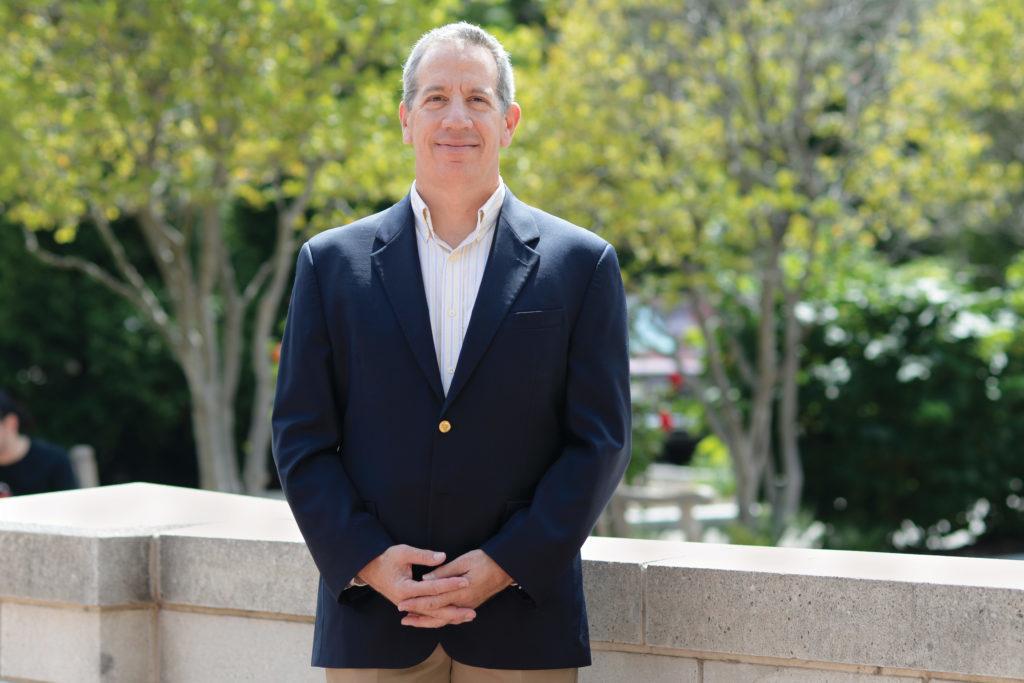The University shut out the organization formerly known as the GW Alumni Association – but members of the group said they are getting a fresh start after weeks of uncertainty about the future of the organization.
The board of the alumni association – now called the Independent Alumni Association of George Washington – voted Thursday to continue its mission of serving alumni, Martin Baum, the president of the group, said. Details about the new structure of the board and organization have not yet been ironed out, but Baum said the group will rewrite its bylaws, reorganize the board’s committees and continue to provide grants and awards to alumni by the new year.
The University unexpectedly cut ties with the alumni organization last month after back-and-forth about whether the group would merge with the University’s alumni office. Internal turmoil about the merger led to dozens of resignations and the removal of the organization’s former president.
Baum said members of the group – who were “blindsided” by the University’s decision to create its own alumni association – voted almost unanimously Thursday, in a 13–2 vote, to continue working together as volunteers. The two members who voted “no” decided to stay on, and the board maintains a 15-person membership, he said.
He said the organization will discuss the path forward in the coming months, starting at a board meeting Oct. 26 where alumni who are not on the board will be invited to have their voices heard.
He added that being completely independent of the University gives the organization a chance to start over and be more effective in allocating the group’s resources and communicating with alumni.
The organization will not participate in Colonials Weekend – the four-day event that the University hosts annually for parents and alumni – as it has for nearly 60 years, he said. The group will not work with the University to issue grants and awards this year and will instead focus on restructuring, Baum said.
“We’ve been forced to take a step back,” he said. “To be honest, it’s had the effect of galvanizing us.”
The group will not have access to GW’s money for grants and awards, but the group has access to its own independent endowment, Baum said. He declined to say how much money the endowment contains.
He said it can be “healthy” to challenge members’ long-held beliefs about how the organization has worked with alumni because members can bring forward fresh ideas during the group’s reformation period.
He said alumni on and off the board have voiced support for the organization, citing the group’s 58-year run as the main avenue for alumni activity. Baum said about 40 alumni told him in emails and on social media that they were shocked by the University’s announcement last month and stood behind the group.
“What I tell every single individual is we can’t worry too much about the past,” he said. “I know what our core mission is.”
The association is also working on creating a new logo, which will be finalized in the coming months, he said.
University spokeswoman Lindsay Hamilton said the University is moving forward with its own alumni association. She declined to say how the University is working with the new independent organization to hand out grants and awards.
“The University is focused on building an alumni organization that will provide GW alumni with positive, lifelong and meaningful engagement and volunteer opportunities,” she said.
She declined to say who is involved in discussions with the association and when decisions about the grant and award programs will be made. She declined to say what feedback alumni gave the University about the decision to part ways with the alumni association.
She also declined to say if the University and the group will work together on any future events.
Morgan Corr, the secretary of the board, said although GWAA wasn’t “perfect,” the group of alumni volunteers who ran it put time and effort into their work. He said being independent allows the association to give all alumni access to financial resources and programming equipment, even if the University sets its priorities on one group of alumni in a certain year.
He said the University’s choice to cut ties with the group was “unfortunate,” but not every employee of GW should be held accountable or suffer the consequences of the decision.
“The reality is that GW is a very large place, and we don’t want to allow the decisions of a few misguided people in one part of the University, OAR, to dictate to us what the alumni experience is going to be,” he said.
Corr said the group is looking into supporting regional groups and possibly creating an endowment in support of the University, but no decisions have been made.
“There is clearly a constituency that is supporting the University but not beholden to the University,” he said.
Debbie Wheeler, a board member, said that though it wasn’t GWAA’s idea to part ways with the University, the organization is trying to make the best of the situation by continuing to operate independently and support alumni.
“The more help, the better,” she said. “The more hands, the better.”





